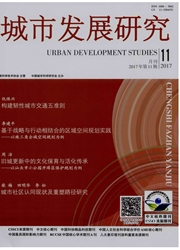

 中文摘要:
中文摘要:
省际商品贸易不仅带来经济效益,同样会伴随污染转移。从消费视角分析隐含于省际贸易中的污染治理成本转移,对于全面理解大气污染治理投入及其环境公平具有重要意义。通过构建多区域投入产出模型,以大气环境密切依存的泛京津冀区域为例,对其各省市间省际贸易所带来的主要大气污染物完全治理成本转移进行评估,并与省际贸易导致的经济收益转移进行比较,基于二者关系权衡,揭示了大气环境治理上存在的不公平。结果表明,北京、天津等发达省市通过消费山西、内蒙古、河北、河南的污染密集型产品,将本该属于自身的大气污染完全治理成本转移到能源富集的落后省份;山西和内蒙古等落后省份虽承担了约70%的大气污染完全治理成本,但只获得了不到20%的GDP净流入。
 英文摘要:
英文摘要:
Inter-provincial trade can not only bring economic benefits,but also lead to interregional pollution transfer. This paper analyzes total pollution control cost transfer embodied in inter-provincial trade from perspective of consumption,and results can have important significance for the comprehensive understanding of air pollution control fiscal input and environmental fairness. Through constructing multi-regional input-output model,this paper takes Pan-Beijing-Tianjin-Hebei region,where the air environment is interactional with each other,as example,to assess the total pollution control cost transfer of main air pollutants from inter-provincial trade. By comparing the transfer of economic benefits and pollution control cost related to inter-provincial trade,this paper also reveals unfairness of air pollution control. The result shows that Beijing,Tianjin and other developed provinces and metropolis have transferred the total air pollution control cost,which should be paid by themselves,to energy-rich undeveloped provinces through the consumption of pollution-intensive products from Shanxi,Inner Mongolia,Hebei and Henan. About 70% of total air pollution control cost has been undertaken by Shanxi,Inner Mongolia and other undeveloped provinces,while only less than 20% of GDP net inflows has been received. Results can provide quantitative technical support for redistribution or horizontal transfer payment of control input of air pollution in Pan-Beijing-Tianjin-Hebei region.
 同期刊论文项目
同期刊论文项目
 同项目期刊论文
同项目期刊论文
 期刊信息
期刊信息
